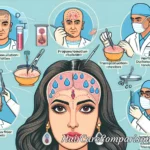Undergoing a transplant surgery is a major life event that necessitates significant adjustments in various aspects of daily life, including sexual activities. While the restoration of health and the promise of a better quality of life are the primary goals, there are often unspoken concerns and questions about what life post-transplant will look like, especially regarding intimacy and sexual activities. This article explores why some individuals may choose to avoid sexual activity after a transplant, the recommended duration for such avoidance, and how to navigate this sensitive period.
Understanding the Reasons for Avoidance
After undergoing a transplant, patients often receive a wealth of information regarding post-operative care. However, discussions about sexual health and activity can sometimes be overlooked. It’s essential to understand the reasons for sexual activity avoidance post-transplant to address any concerns adequately and to provide the necessary support for patients during their recovery.
The Role of Physical Recovery
The physical recovery post-transplant is a critical period where the body is healing and adjusting to the new organ. This process can be physically draining and can significantly impact one’s energy levels and desire for sexual activity. Additionally, concerns about harming the surgical site or affecting the healing process may also lead to avoidance.
Psychological and Emotional Factors
The Impact of Stress and Anxiety
Undergoing a transplant is not only physically demanding but also emotionally and psychologically taxing. The stress and anxiety associated with the surgery, fear of organ rejection, and the adjustment to a new lifestyle can affect one’s libido and interest in sexual activity.
Body Image Concerns
Changes in body image post-surgery can also play a significant role in sexual activity avoidance. Scars, weight changes, or other physical alterations may affect how individuals perceive themselves and, by extension, their comfort level with intimacy.
Navigating Intimacy Post-Transplant
Communication with Your Partner
Open and honest communication with your partner is crucial in navigating intimacy issues post-transplant. Discussing fears, expectations, and desires can help both partners understand each other’s perspectives and find ways to maintain intimacy without necessarily engaging in sexual activity.
Consulting Healthcare Professionals
Seeking advice from healthcare professionals can provide valuable insights and recommendations on resuming sexual activity. They can offer guidance on the safe resumption of sexual activity post-hair transplant and other types of transplants, ensuring that physical health is not compromised.
Exploring Alternatives to Sexual Intimacy
Finding alternative ways to express love and intimacy can be fulfilling for couples during this period. Activities such as cuddling, massage, or simply spending quality time together can strengthen the emotional bond and provide comfort.
Recommended Duration for Avoidance

The recommended duration for avoiding sexual activity post-transplant varies depending on the type of transplant and the individual’s recovery. While some may be advised to wait for a few weeks, others might need to wait longer. Information on alcohol avoidance duration post-transplant also provides insight into the recovery timeline and precautions that should be taken during this period.
Lifestyle Adjustments for a Healthy Recovery
Besides managing sexual activity, making certain lifestyle adjustments is crucial for a healthy recovery post-transplant. Avoiding alcohol and being mindful of sun exposure are important considerations. For instance, understanding the sun avoidance duration post-hair transplant can help in planning outdoor activities without risking health.
Addressing Alcohol Consumption
Alcohol consumption post-transplant requires careful consideration due to its potential impact on medication effectiveness and organ health. Guidelines on alcohol consumption safety post-transplant offer valuable advice for individuals looking to navigate social situations without compromising their recovery.
Maintaining Overall Health and Wellbeing
Maintaining overall health and wellbeing is paramount after a transplant. A balanced diet, regular physical activity, and mental health support are key components of a holistic recovery plan. Prioritizing these aspects can not only aid in a smoother recovery but also improve the quality of life post-transplant.
Conclusion
Sexual activity avoidance post-transplant is a complex issue influenced by physical, psychological, and emotional factors. Understanding the reasons behind this avoidance, communicating openly with partners and healthcare providers, and making necessary lifestyle adjustments are essential steps in navigating this sensitive period. By addressing these aspects, individuals can ensure a healthier recovery process and maintain intimacy and connection with their partners, paving the way for a fulfilling life post-transplant.






